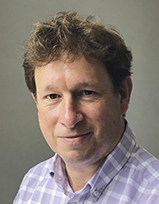The Baroque era gave us some of the most dramatic, dazzling, and deeply moving music ever written.
From soaring violin solos to powerful choral masterpieces, this golden age (1600–1750) shaped the way we hear music today. But who stood out among the crowd of powdered wigs and harpsichord heroes? Here’s our ranking of the 11 best Baroque composers—the visionaries whose works still captivate, inspire, and get stuck in our heads centuries later.
Best Baroque composers

11. Giovanni Battista Pergolesi (1710-36)
Pergolesi achieved a remarkable amount in his 26 short years on this earth. Listeners today know him best for the achingly plaintive vocal lines of his Stabat Mater, but it was largely operas – both light-hearted, such as La serva padrona, and serious, such as l prigionier superbo – that wowed audiences in early 18th-century Naples. Stravinsky’s 1920 ballet Pulcinella was once believed to be based on Pergolesi’s music, this was later shown to be untrue.
10. François Couperin (1668–1733)
François Couperin, often called “Couperin le Grand,” was a standout French composer of the Baroque era. He blended elegance, charm, and emotion in his harpsichord pieces, crafting music that feels both intimate and expressive. Couperin played a key role in shaping French keyboard music and beautifully bridged French and Italian styles. His work influenced later composers like Ravel and Debussy, keeping his graceful touch alive across the centuries.


9. Georg Philipp Telemann (1681-1767)
Music’s great workaholic, Telemann deserves to be remembered for the quality, not just the quantity of his output. Whether writing for the keyboard (and, in particular, organ), instrumental ensemble or opera stage, Telemann broke new ground in incorporating influences from across Europe into his music. The godfather of JS Bach’s son Carl Philipp Emanuel, he turned down the post of cantor at St Thomas Church, Leipzig, paving the way for Bach himself to take it.
8. Jean-Baptiste Lully (1632-1687)
Lully was the superstar of King Louis XIV’s court and the mastermind behind French Baroque opera. Originally from Italy, he brought a bold theatrical flair to France, shaping tragédie lyrique—a uniquely French form of opera blending music, dance, and drama. Lully’s music sparkled with energy and elegance, setting trends across Europe. His ability to fuse grand spectacle with expressive depth made him a powerful force in shaping Baroque musical identity.


7. Arcangelo Corelli (1653-1713)
Arcangelo Corelli was a rockstar of the violin in Baroque Italy, known for his smooth, expressive style and elegant compositions. He helped shape the modern concerto and sonata, making string music more refined and emotionally rich. Corelli’s music was admired across Europe, influencing greats like Handel and Bach. His works feel balanced and graceful, and he’s often credited with setting the standard for Baroque string playing and ensemble writing.
6. Domenico Scarlatti (1685-1757)
Not to be confused with his dad Alessandro, the Naples-born Domenico Scarlatti spent much of his career employed in royal courts in Portugal and, latterly, Spain. Above all, he is remembered for his 555 sonatas for keyboard, which pushed the boundaries of both technique and harmony and are still much loved by pianists today.

Baroque composers: the top five

5. Henry Purcell (1659-95)
Purcell’s Dido and Aeneas is largely considered the first English opera of major significance, and some would go as far as suggesting he was the last great British-born composer until the turn of the 20th century. Employed at both Westminster Abbey and the Chapel Royal, Purcell produced a large body of sacred and secular music, including important works for state occasions. His fresh, immediate style was later admired by composers including Benjamin Britten.
- We named Purcell as one of the best English composers ever
4. Claudio Monteverdi (1567-1643)
Born in Cremona, Italy, Monteverdi forged his career at the court in Mantua and then as maestro di cappella (director of music) at St Mark’s, Venice. One of the first ever composers of opera – his L’Orfeo dates from 1607 – Monteverdi is equally revered today for his religious music, including the masterful Vespers of 1610. His championing of the seconda pratica style, placing music’s emphasis on the expression of words, caused some controversy in his time.


3. Antonio Vivaldi (1678-1741)
Vivaldi is best known today for The Four Seasons, his set of brilliantly inventive violin concertos, but there’s a lot more to the Venice-born composer than that. Countless other violin concertos flowed from the pen of the ‘Red Priest’ (named after the colour of his hair), as did operas such as Orlando furioso and choral works including the famous Gloria in D. JS Bach was just one of many composers influenced by him.
2. George Frideric Handel (1685-1759)

Born in Germany, but later made a British citizen, Handel’s musical output was as wide-reaching as it was impressive. His operas, such as Giulio Cesare and Serse, made him the toast of Georgian London, which also thrilled to ceremonial commissions such as his Music for the Royal Fireworks and Zadok the Priest. Add to this a considerable number of highly polished concerti grossi and keyboard works plus, of course, a string of oratorios that includes the uniquely popular Messiah.
And the best Baroque composer of all is...
1. Johann Sebastian Bach (1685-1750)
Arguably the greatest composer of all time, and undoubtedly one of the most influential.

A devout Christian, Bach's religious inspiration manifests itself in a wealth of sacred cantatas, the monumental B minor Mass and, above all, the quasi-operatic St John and St Matthew Passions. But these are just the tip the iceberg.
His staggeringly inventive music for solo instrument includes the six Cello Suites, six sonatas and partitas for violin, countless organ works and, for keyboard, the Goldberg Variations and the Well-Tempered Clavier. Despite such a prodigious output, produced while in post in the cities of Weimar, Cöthen and Leipzig, every note was meticulously crafted.
Read our reviews of the latest Bach recordings here
Lully pic: Robert Risko. All other pics: Getty Images
